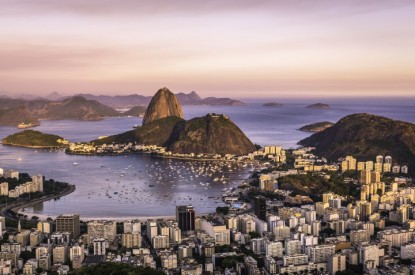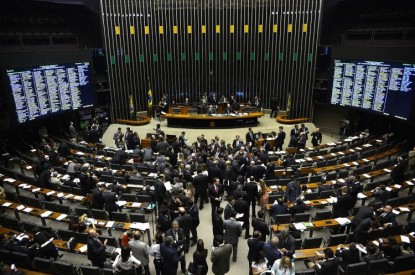Legislation
Brazil – Legal challenge to change gaming laws gains impetus in Brazil
By Phil - 3 April 2019
The National Confederation of Tourism and Hospitality Workers (CONTRATUH) has put forward a motion naming itself as “amicus curiae” in a constitutional action aimed at changing Brazil’s antiquated gaming laws.
Proposed changes to the law were submitted to the Federal Supreme Court by the Partido Humanista da Solidariedade (Humanist Party of Solidarity) in January and aims to nullify laws which makes the private operation of gambling illegal. CONTRATUH is made up of 30 federations and more than 400 unions distributed throughout the country.
According to a PHS party statement, gaming laws as enshrined by Article 50 of the Misdemeanour Law or Criminal Contravention Act and decree Law No 9215 of 1946 (which covers morality and good customs), go against the fundamental right of equality provided for in article 5 of the Federal Constitution. Under Brazilian law any game involving a bet is a crime according the Criminal Contravention Act of 1941. As this law still stands, any type of gaming activity that does not have its own regulations is considered to come under the Act. However according to the motion put forward by the PHS in January giving the government the sole right to exploit gaming and criminalising private run gambling is unjustified.
In the petition to act as a directly interested party in the action lawyers acting for CONTRATUH Agilberto Serbio and Samuel da Silva Antunes said that: ” CONTRATUH, the legitimate representative for the workers of companies that exploit games of chance, such as casinos and bingos, have always defended the operation of these ventures as a way to strengthen tourism, as well as generating employment and income, demonstrating that the activity can be developed properly, (which is )what happens legally in various countries around the world.”
The petition goes on to outline the economic benefits that legalisation of the industry would bring saying that it would create approximately 250 thousand direct jobs and 500,000 indirect jobs.
“Free initiative has a prominent role in the democratic model of law on which the Federal Constitution of 1988 is based,” the petition states and goes onto argue “therefore, Article 50 of the Law of Criminal Contraventions and Decree-Law No. 9.215, of 1946, runs counter to the aforementioned constitutional provisions, generating an illegal reserve of market to the Public Power (lotteries) regarding the exploitation of economic activity relating to games of chance, which directly violates the constitutional principle of equal distribution of rights and privileges and free initiative.”
Moves to overturn the 1941 law are not new but this is the first time that a party has come out in support of declaring Brazil’s gaming laws as unconstitutional. In 2017 a number of bingo halls in Porto Alegre, the capital of the Brazilian state of Rio Grande do Sul reopened after local state magistrates ruled in their favour arguing that the 1941 law violates principles laid out in the 1988 Constitution. The Brazilian constitution was rewritten in 1988 after civilian rule returned to Brazil after more than two decades of military government.



